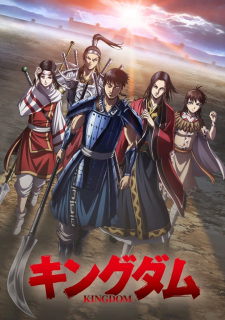
Kingdom 4th Season
Summary: Following the conclusion of the large-scale coalition campaign, the entirety of China is in a state of economic recovery. The victor of the battle, the state of Qin, is no different. There, the political parties led by Ying Zheng and Buwei Lü continue their inner conflict. Having played the role of king in the coalition battle, Zheng has the trust of the people—but Lü is far from out of the fight. In 18 months, he plans to interrupt Zheng's coming-of-age ceremony.
Meanwhile, a Zhao army numbering 20,000 troops has set out toward Qin. In the royal court, due to the lack of generals capable of responding to the incoming threat, Lü slyly suggests that Zheng take command. However, Cheng Jiao, Zheng's half-brother, volunteers instead. As they grew to trust each other during the coalition battle, Zheng now accepts Jiao as his replacement.
However, the Zhao forces retreat a mere half-day after clashing with Jiao's army. With trouble quickly brewing in the shadows, the internal struggle of Qin is only complicated further. There are only two men Zheng feels he can rely on: Bi, a general who commands 30,000 men; and Xin, the leader of the Fei Xin force.
[Written by MAL Rewrite]
Description
Following the conclusion of the large-scale coalition campaign, the entirety of China is in a state of economic recovery. The victor of the battle, the state of Qin, is no different. There, the political parties led by Ying Zheng and Buwei Lü continue their inner conflict. Having played the role of king in the coalition battle, Zheng has the trust of the people—but Lü is far from out of the fight. In 18 months, he plans to interrupt Zheng's coming-of-age ceremony.
Meanwhile, a Zhao army numbering 20,000 troops has set out toward Qin. In the royal court, due to the lack of generals capable of responding to the incoming threat, Lü slyly suggests that Zheng take command. However, Cheng Jiao, Zheng's half-brother, volunteers instead. As they grew to trust each other during the coalition battle, Zheng now accepts Jiao as his replacement.
However, the Zhao forces retreat a mere half-day after clashing with Jiao's army. With trouble quickly brewing in the shadows, the internal struggle of Qin is only complicated further. There are only two men Zheng feels he can rely on: Bi, a general who commands 30,000 men; and Xin, the leader of the Fei Xin force.
[Written by MAL Rewrite]
Available At
Warning: Array to string conversion in /home/hianime.me.uk/public_html/anime.php on line 243
Array
Warning: Array to string conversion in /home/hianime.me.uk/public_html/anime.php on line 243
Array
Warning: Array to string conversion in /home/hianime.me.uk/public_html/anime.php on line 243
Array
Warning: Array to string conversion in /home/hianime.me.uk/public_html/anime.php on line 243
Array
Warning: Array to string conversion in /home/hianime.me.uk/public_html/anime.php on line 243
Array
Warning: Array to string conversion in /home/hianime.me.uk/public_html/anime.php on line 243
Array
Warning: Array to string conversion in /home/hianime.me.uk/public_html/anime.php on line 243
Array
Kingdom 4th Season Trailers
Kingdom 4th Season Pictures
Kingdom 4th Season Review
Kingdom 4th Season — Following the conclusion of the large-scale coalition campaign, the entirety of China is in a state of economic recovery. This overview is intentionally spoiler-free and focuses on tone and intent rather than plot specifics.
Thematically, It sits firmly within Action conventions as a TV work and has garnered attention (MAL score: 8.73). This work explores character dynamics, tonal shifts, and the interplay between narrative ambition and execution. The story's pacing and tonal choices are crafted to complement the central ideas, often emphasizing atmosphere and emotional truth over explicit exposition. The show's ability to evoke a consistent mood — whether melancholic, exuberant, or contemplative — is a recurring strength, and the scenes are constructed so viewers can infer stakes without needing explicit spoilers.
Characterization is a core pillar here. Protagonists and supporting figures are written with distinct motivations and narrative roles; even when archetypal, the series invests in small behavioral details that make choices feel earned. Character arcs are handled with an eye for gradualism: development often arrives through incremental beats rather than abrupt, expository shifts. The interactions between characters create texture, and relationships are used to illuminate both personal flaws and larger thematic concerns.
On the visual front, production values play a significant role. The animation quality varies by sequence but frequently showcases thoughtful direction and composition. Background art, framing, and color palettes are used deliberately to support tone — quieter scenes favor muted palettes while action or heightened emotional beats employ brighter, more kinetic visuals. Direction choices, such as camera movement and shot selection, often elevate scenes beyond their raw script, creating moments that linger in the viewer's mind.
The soundscape — score, incidental music, and sound design — complements the visual language. Music cues are placed to maximize emotional resonance without manipulating the audience with melodrama; this restraint often leads to more authentic emotional payoff. Sound design punctuates key moments, and when the series leans on silence, those quieter moments are given weight by measured audio choices.
Pacing and structure are handled with craft. Episodes are arranged to build tension and release methodically, and the narrative rarely rushes through important emotional beats. That said, the deliberate pacing may feel slow to viewers who prefer faster plot turnover; the reward is greater nuance and an accumulation of meaning across the series. Accessibility is generally good — one can appreciate surface-level pleasures, while repeat or attentive viewing reveals additional layers.
No title is without flaws. Occasional unevenness in subplots or variable animation across episodes can be distracting. Some tonal shifts might feel abrupt if you expect uniformity; others will argue that those shifts are purposeful. These are worth noting, but they seldom undercut the larger achievements of the work.
In sum, Kingdom 4th Season offers a rich experience for viewers who value character-driven storytelling, considered visual design, and a soundtrack that supports rather than overwhelms. For fans of Action, this is an especially rewarding watch. It's recommended for those who appreciate layered narratives and artistry in animation, and best approached with patience and attention to nuance.
Characters & Voice Actors

He Liao, Diao
Main

He Liao, Diao
Main

Lei, Qiang
Main

Xin
Main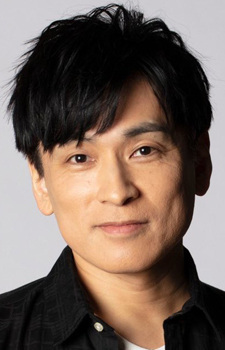

Xin
Main
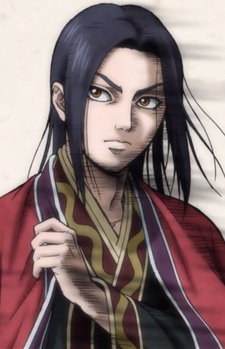
Ying, Zheng
Main

Ying, Zheng
Main

Ying, Zheng
Main
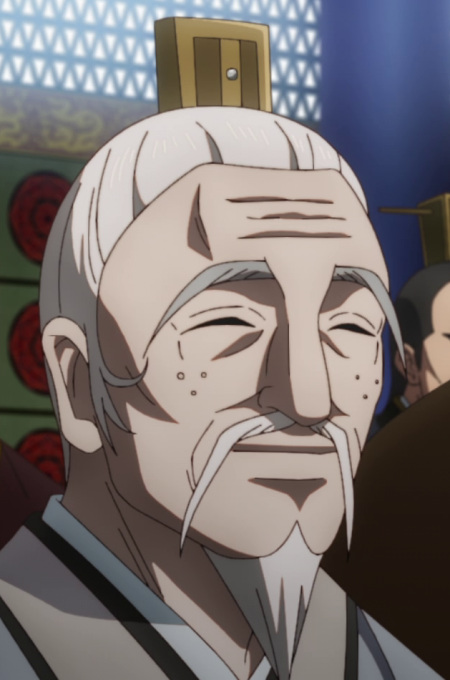
Bai, Shou
Supporting

Bai, Li
Supporting
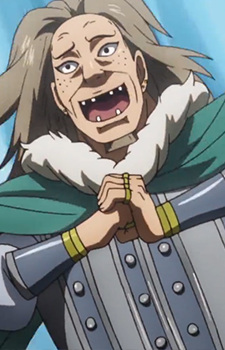
Bamyu
Supporting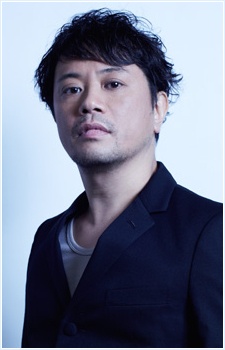
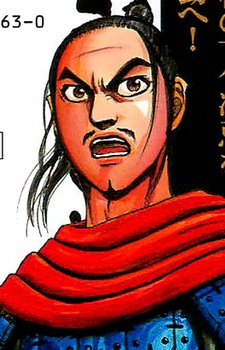
Bi
Supporting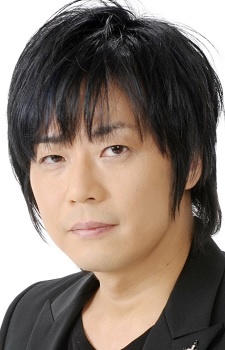

Bo, Zi
Supporting
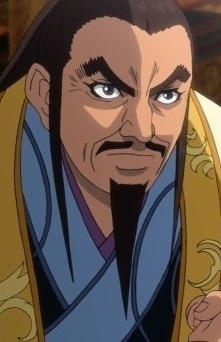
Buwei, Lü
Supporting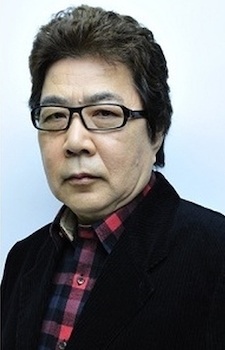

Buwei, Lü
Supporting

Buwei, Lü
Supporting
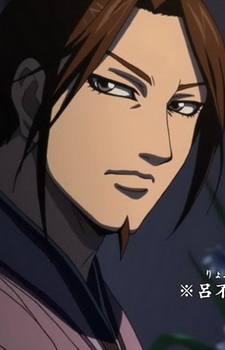
Changping Jun
Supporting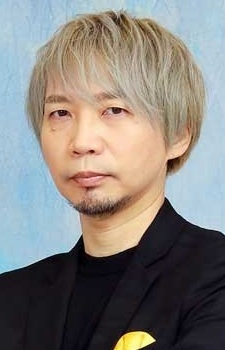

Changping Jun
Supporting

Changwen Jun
Supporting

Changwen Jun
Supporting
Staff

Iizumi, Tomokazu
Producer

Kurashima, Mayumi
Producer

Tamura, Yousuke
Producer

Imaizumi, Kenichi
Director, Storyboard, Key Animation

Koizumi, Kisuke
Sound Director

Geshi, Yasuhiro
Episode Director

Ichii, Ippei
Episode Director, Storyboard

Iimura, Masayuki
Episode Director

Kawanishi, Taiji
Episode Director

Kosaka, Harume
Episode Director

Monma, Kazuya
Episode Director, Storyboard

Satou, Kiyomitsu
Episode Director

Watanabe, Toshinori
Episode Director, Storyboard

Yasue, Natsumi
Episode Director

Irie, Shingo
Script

Miyashita, Junichi
Script

Tanimura, Daishirou
Script

Kageyama, Shigenori
Storyboard

Narita, Toshinori
Storyboard

Takamoto, Yoshihiro
Storyboard